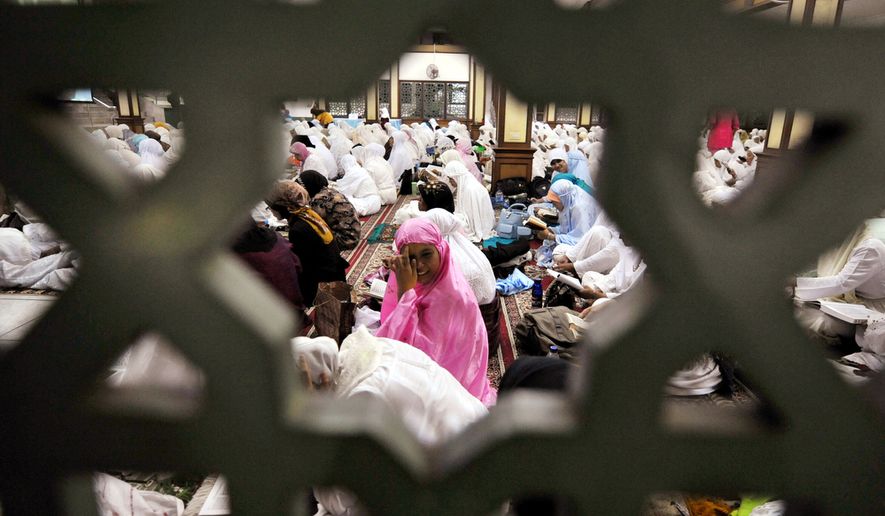The Islamic new year begins Friday, a time for Muslims to reflect on the past 12 months and remember the origins of their faith.
Called Muharram, the first month of the Muslim New Year (which is now 1436) runs through Nov. 23.
“The Muslim New Year is really celebrated as a cultural holiday, not a particularly religious one,” said Imam Johari Abdul-Malik, director of outreach at the Dar Al-Hijrah Islamic Center in Falls Church, Virginia. “For Arabs, prior to the advent of the Prophet Muhammad, they had considered this a month of nonviolence. All the tribes, independent of religion, knew this month was committed to non-violence.”
“In the Islamic calendar, it is also what began ’hijra,’” Mr. Abdul-Malik said, “the migration of the Prophet and his companions to establish a place where they were free to practice their religion, and practice it with other people who would be free to practice their religion.”
Muhammad, who lived in the eighth century and founded Islam, migrated north about 270 miles from the city of Mecca to the city of Medina.
“The city was established so people could be free to practice their religion,” Mr. Abdul-Malik said. “[At the time] this lunar calendar is significant for them because it’s the beginning of a new era they recognized in that time.”
SEE ALSO: Voters back religious leaders who defend faith against government, poll shows
Despite the month’s religious roots, Muharram today is “more of a cultural holiday,” he said. “Think of it as a new year, as a new beginning to make resolutions.”
Imam Faizul Khan of the Islamic Society of the Washington Area said there are only two days Muslims celebrate — Eid al-Adha, the Feast of Sacrifice, and the end of Ramadan.
Eid al-Adha celebrates the faith of Abraham being willing to sacrifice his son for God, while Ramadan is a month of reflection and spiritual discipline.
Unlike Ramadan, which is a month of fasting, most Muslims will only fast around the ninth, 10th and 11th days of Muharram, Mr. Abdul-Malik said, though those days include “all the elements of atonement, repentance and renewal.”
Shia Muslims, Mr. Khan said, generally observe the 10th day of Muharram, called Ashura, which recalls the death of the Prophet Muhammad’s grandson.
“Those two are internationally recognized Muslim holidays,” Mr. Khan said. “Those are the only two Muslims go all out for.”
SEE ALSO: ‘Angel’ Roma Downey touts new show of God’s miracles
Mr. Khan said the start of the new year is a time for “looking forward.”
“There’s no significant celebration,” he said. “It’s a reflection of a new year. We rejoice in such a way, we’re happy that God gave us the ability to see another day, we give thanks and praise.”
It’s a time for reflection and “recognition we’re moving one day more toward destiny,” he said.
• Meredith Somers can be reached at msomers@washingtontimes.com.




Please read our comment policy before commenting.